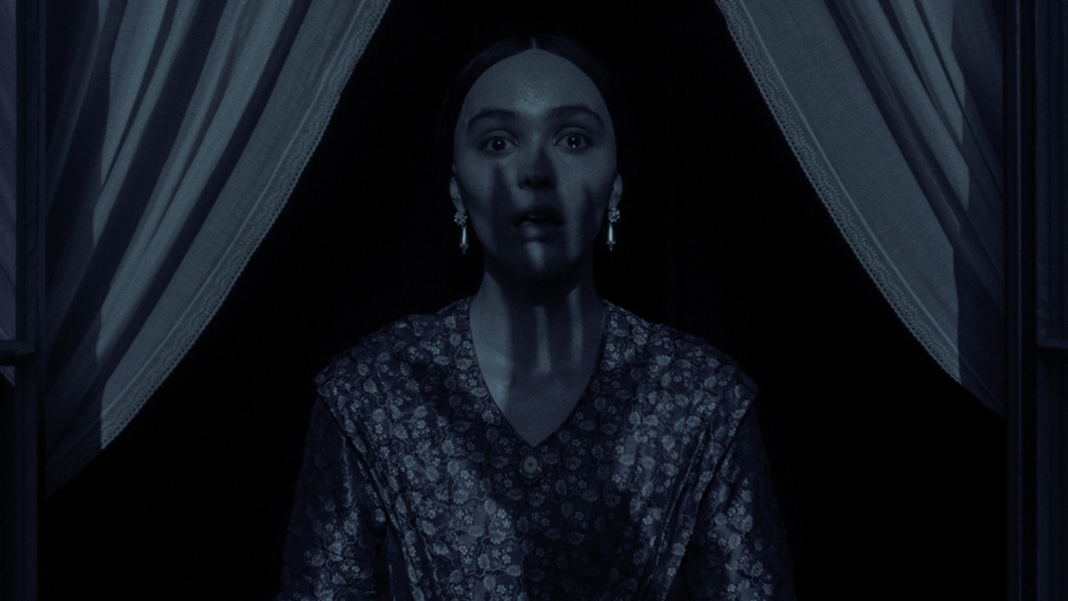Werewolves: Robert Eggers’ ‘Werwulf’ Review
Werewolves are making a big comeback in the world of horror. With recent releases like Frank Grillo’s “Werewolves” and Leigh Whannel’s “Wolf Man,” it’s evident that this subgenre is gaining popularity. Now, renowned historical horror master Robert Eggers is venturing into lycanthropy with his latest project, “Werwulf.” Following the success of “Nosferatu,” Eggers is teaming up with Focus Features once again for this 13th-century horror flick. After witnessing his previous work, I am excited to see how he brings this classic creature to life. However, there are certain aspects that I hope he embraces and others that I hope he avoids in this upcoming horror movie.
What to Expect from “Werwulf”
According to The Hollywood Reporter, “Werwulf” will transport viewers to medieval England, immersing them in a world of period-accurate dialogue and the gritty, visceral tone that Eggers is known for. Co-written with Sjón, who also worked on “The Northman,” this film promises to take audiences on a journey through a muddy, costumed, and violent historical era. While details are still scarce, one thing is certain: Eggers’ unique style will set this werewolf story apart from the rest in a genre that often lacks substance.
What Robert Eggers Should Embrace in “Werwulf”
First and foremost, Eggers should focus on maintaining historical authenticity. His meticulous attention to detail in recreating specific time periods, as seen in “The Witch” and “The Lighthouse,” has always set his work apart. The medieval setting of “Werwulf” offers a rich tapestry of superstition, fear, and brutality that Eggers can explore to create a truly immersive experience. By delving into real-world elements like witch hunts, pagan rituals, and the clash between science and superstition, Eggers can craft a narrative that not only terrifies but also intrigues.
Additionally, Eggers should ground the werewolf legend in folklore. With a history deeply rooted in mythology, werewolves offer a wealth of themes to explore. From curses to divine punishment, Eggers can delve into the psychological and spiritual implications of lycanthropy, creating a story that goes beyond mere monster horror. By infusing the narrative with dark and obscure folklore, Eggers can elevate “Werwulf” into a thought-provoking exploration of the human condition.
What Robert Eggers Should Avoid in “Werwulf”
One aspect that Eggers should be cautious about is creating characters that feel distant or unrelatable. While his ability to craft oppressive atmospheres and detailed worlds is commendable, some of his characters have been criticized for lacking emotional depth. In a werewolf story, it is crucial for the audience to empathize with the protagonist’s struggle, fear, and transformation. Films like “The Wolf Man” and “An American Werewolf in London” succeed because they establish a strong emotional core that resonates with viewers. Eggers must ensure that “Werwulf” strikes a balance between atmosphere and humanity to avoid alienating the audience.
Conclusion
With “Werwulf” set for release in Christmas 2026, Robert Eggers has the opportunity to redefine the werewolf subgenre. By combining historical authenticity, deep folklore, and emotionally resonant storytelling, Eggers can create a modern horror masterpiece that lingers in the minds of audiences long after the credits roll. If he can strike the right balance between atmosphere and humanity, “Werwulf” has the potential to be one of the most anticipated films of the year.
Frequently Asked Questions
1. What is the release date for “Werwulf”?
– “Werwulf” is scheduled for a Christmas 2026 release.
2. What makes Robert Eggers’ work unique?
– Eggers’ attention to historical authenticity and folklore sets his work apart in the horror genre.
3. What themes can viewers expect in “Werwulf”?
– “Werwulf” will explore themes of superstition, fear, and the clash between science and superstition in medieval England.
4. Why is character relatability important in a werewolf story?
– Character relatability is crucial in a werewolf story to ensure that the audience empathizes with the protagonist’s struggle and transformation.
5. How can Eggers avoid creating distant characters in “Werwulf”?
– Eggers can ensure emotional depth in “Werwulf” by establishing a strong emotional core that resonates with the audience.
6. What distinguishes “Werwulf” from other werewolf films?
– “Werwulf” sets itself apart through Eggers’ signature style, historical authenticity, and deep exploration of folklore.
7. What should viewers look forward to in Eggers’ portrayal of werewolves?
– Viewers can anticipate a thought-provoking exploration of the psychological and spiritual implications of lycanthropy in “Werwulf.”
8. Why is folklore essential in a werewolf narrative?
– Folklore adds depth and complexity to the werewolf legend, allowing filmmakers to explore darker and more obscure themes.
9. How can Eggers redefine the werewolf subgenre with “Werwulf”?
– By combining historical authenticity, deep folklore, and emotionally resonant storytelling, Eggers can create a modern horror masterpiece with “Werwulf.”
10. What are the key elements that make “Werwulf” a highly anticipated film?
– The attention to historical detail, exploration of folklore, and potential for emotional resonance make “Werwulf” a film to watch out for.
Tags: werewolves, horror, Robert Eggers, folklore, historical authenticity, emotional depth, lycanthropy, medieval England, “Werwulf”

